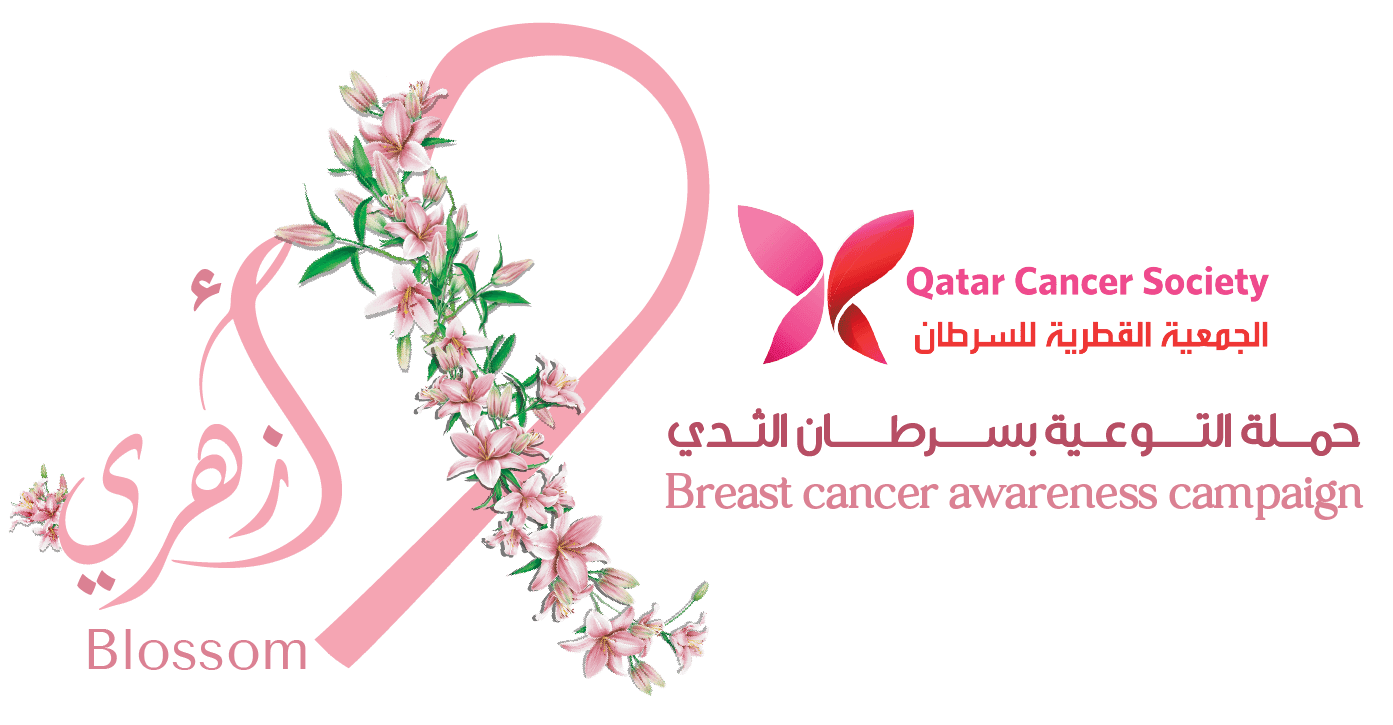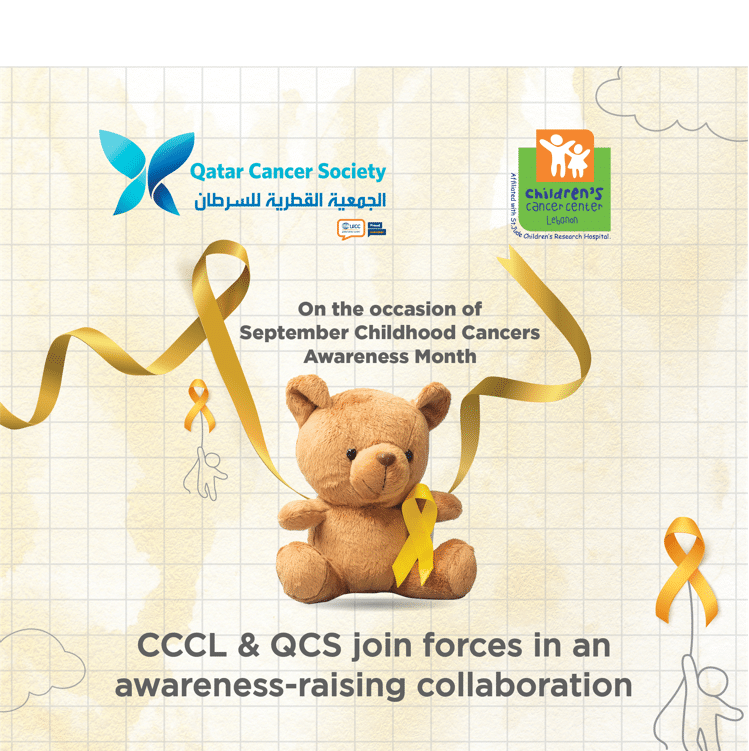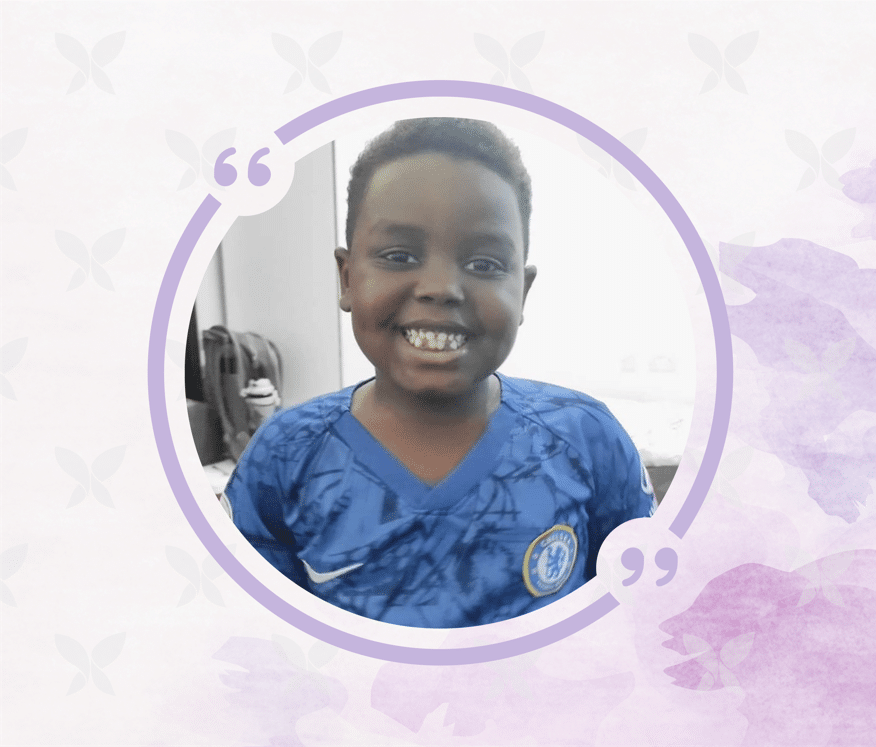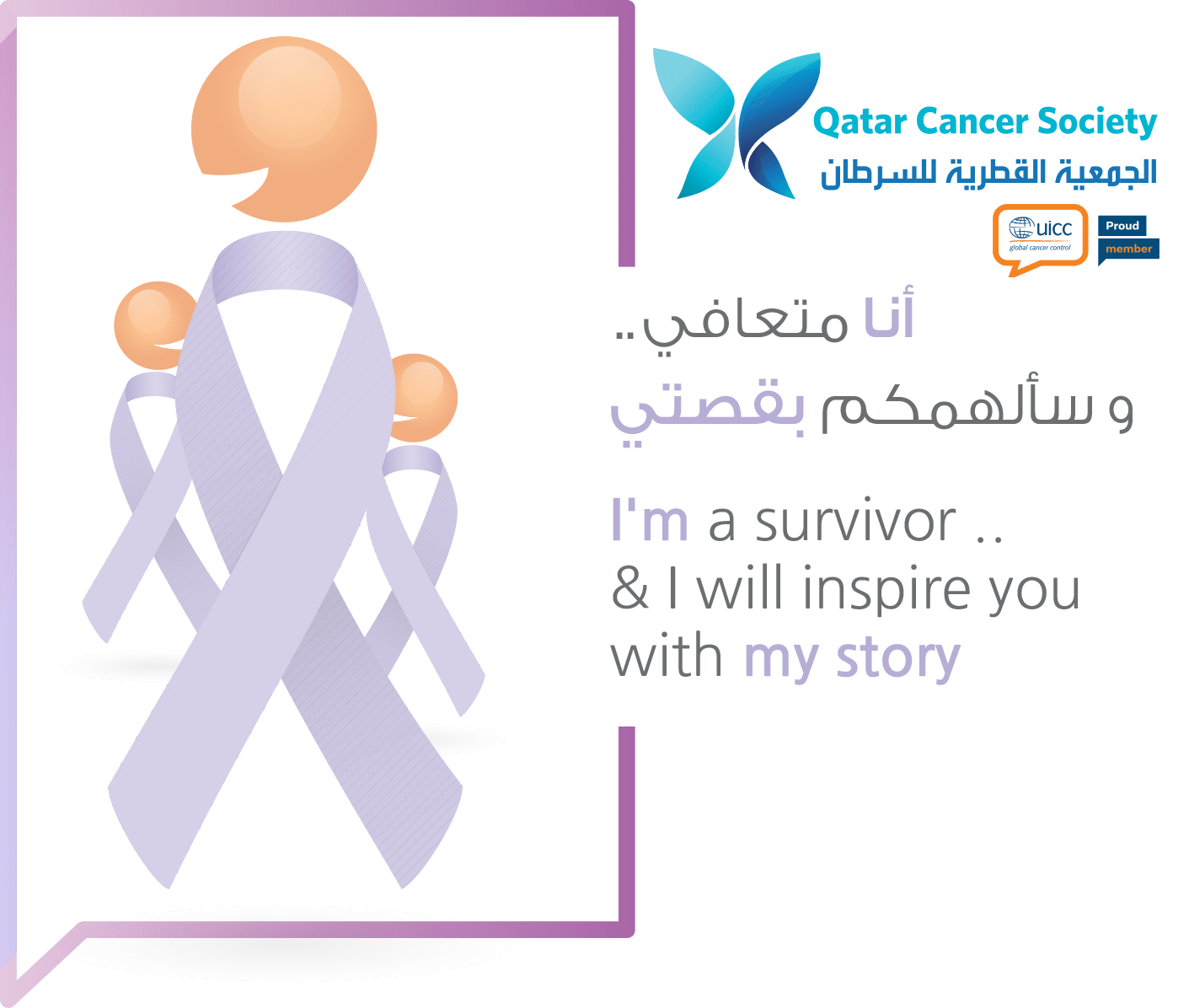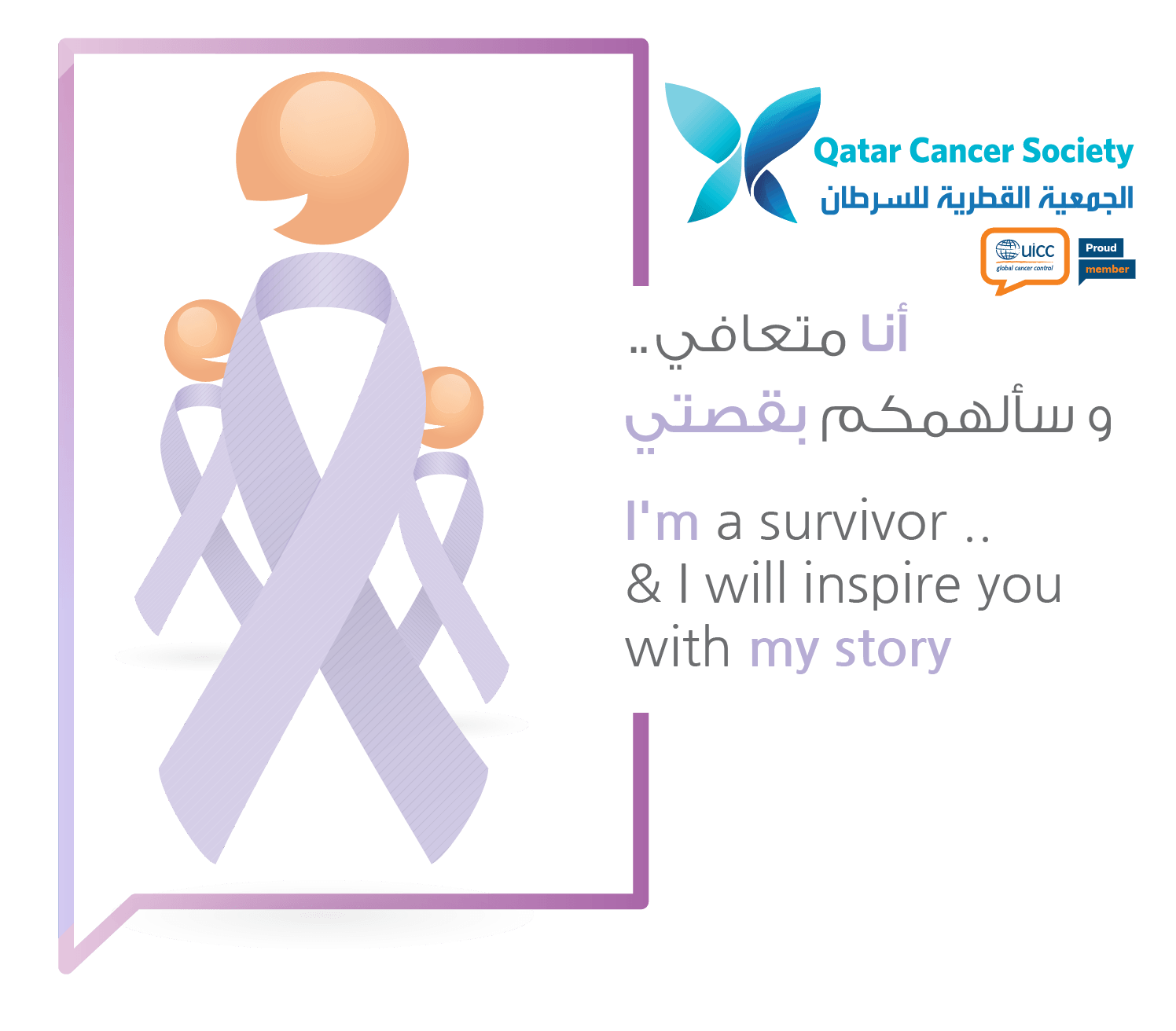Ian is a 64-year-old retired British army officer who has been living in Qatar for the past seven years. After retiring from the army, he moved to the Middle East in 1979 to work in Sultan of Oman; Years later, he relocated to Qatar and lived alone while his wife and children lived in Australia. He has six children. All his children rely on him financially, and as a father, he has a strong sense of commitment to fulfilling their essential needs. His medical journey began 15 years ago, and this is his story :
In 2005, after returning to Australia from a business trip in Spain, Ian did not feel like his regular self. He decided to see his general practitioner (GP) as he was feeling tired and unwell. His doctor did a further workup that included an abdominal x-ray. A few days later, he got a phone call from the GP’s office asking him to come in for an urgent visit. He went to the clinic the following day, and the doctor showed him the x-ray results showing a suspicious lesion on the right kidney, which he described as a “lump.” Ian has been relatively healthy for most of his life and describes himself as being “uninformed” about cancer.
Ian was then referred to a nephrologist, who eventually scheduled a surgical procedure to remove the “lump.” He underwent a right nephrectomy, and the suspicious lesion was removed, further examined, and determined to be benign in origin.
Years passed, and for 15 years after the surgery, Ian had no medical issues. But in November of 2019, he started experiencing pain in his right elbow. He decided to see his GP in Qatar, who prescribed aspirin to reduce the pain. Ian was not improving, the aspirin was not working, and his pain was only getting worse.
He decided to see a doctor at a private hospital in Qatar, who prescribed medicine
for pain relief. Unfortunately, the infusion only worsened his pain. A week later, Ian chose to see another doctor in private practice who worked in West Bay. When the new doctor saw him, he was concerned that Ian’s complaints had not been thoroughly investigated. The doctor requested several tests, including an upper extremity x-ray, and asked Ian to return once the results came out.
Two days later, while sitting at a coffee shop with a few of his friends, Ian received an alarming email from his doctor. In the email, the doctor explained that the x-ray revealed a large tumor in the right elbow, which looked severe and required urgent medical attention. Ian felt shocked and helpless.
He recounts the moment he received the life-changing test results: “I was sitting in the cafe with friends, on a Friday morning, enjoying a latte and a croissant, when I received an email from my physician saying that I had a tumor in my arm that could potentially fracture my bone. At that moment, I honestly didn’t know what to think. I teared up. When you’re suddenly given such news, it is very devastating and tough to grasp at the time.”
Looking back, he was grateful for having some of his closest friends around him at the time. The following day, he went to see his doctor and was referred to Hamad General Hospital for a surgical evaluation. Later that evening, he was admitted to the inpatient surgical ward, and after two days, was operated on to remove the tumor.
Following the surgery, Ian felt weak now that his right arm was practically immobile. The tumor was removed, a metal pin was placed to support the joint, and several biopsies were taken for a microscopical evaluation of the mass to define its origin. When the biopsy results came out, Ian was diagnosed with advanced-stage four renal cancer
From that day onwards, he felt his life would change forever. He wanted to be hopeful but found it very difficult with the devastating news he had received. He was referred to a new oncologist, who supported him living with terminal cancer throughout his journey. After meeting his oncologist, Ian felt more robust and more hopeful about recovering from this grim disease. His oncologist made it clear that the doctors did not completely understand why cancer had metastasized but believed this could be due to remnant tissue in the right kidney that had gone unnoticed from the surgery he had fifteen years ago.
This was not an easy time for him. His family was in Australia, and only his eldest daughter understood what her father was going through. His friends were a significant source of support. They cooked, cleaned, bought groceries, and supported him in any way possible. He felt grateful and forever thankful for their presence in his life. Ian’s oncologist continuously motivated his spirit, pushing him to believe in himself and his ability to beat this disease. Upon finishing his last chemotherapy session, his doctor looked at him and said: “I think you’ll die from something else, and with the drugs we have, we can beat this!”
When asked about the first thoughts that came to his mind when he received the original news about his bone cancer and whether he would have preferred to be told in person, he says: “Well, first of all, I was furious that the earlier physicians missed it. I was initially devastated by email, but I was later very thankful that the doctor was proactive and pushed me to see him at Hamad the next day. Honestly, no matter how you’re told, it’s going to pull you apart.”
Ian explains that a lot of his initial fear stemmed from a lack of knowledge. “I think the problem is that 90% of us out there are uninformed about what cancer is. And we don’t know that it can be beaten! You think of the big ‘C-word,’ and your mind jumps to the worst. We think of the old movies where the guy gets cancer, becomes a vegetable, lives in a hospital, and dies. I’ve learned since then that they’re able to molecularly diagnose cancers and give you treatments that specifically target cancer cells. I’ve kept my hair, and overall, I feel quite well now.”
As a result of his initial uncertainty when receiving his diagnosis, he was reluctant to pursue treatment at first he intent to refuse treatment. However, I talked to my doctor and someone who was going through breast cancer treatment. She told me, ‘you’re probably in the best country in the world for this to happen to you; they have the best protocols and medical staff here.’ Having someone to talk to ahead of you in the treatment and maintains a positive outlook is a huge morale boost. Then, the surgeon supposed to do my arm surgery told me, ‘Look, Ian, you can beat this. That’s when my mind started to change. That’s when I changed my attitude completely–I thought, we can beat this. We started discussing mental attitude, prioritizing my health and well-being, and having short-term goals.”
Although the chemotherapy treatment and its side effects such as fatigue and a metallic taste have been challenging to deal with, he is grateful for his care in Qatar. “Once I got into the public medical system, Hamad Hospital and its doctors were great– flawless, attentive, focused.” He does not blame the doctors who potentially missed his tumour 15 years ago and has always “trusted the medical system.” He points out, “I don’t think I can point a finger or complain about what happened 15 years ago because I don’t know what the state of the technology was back then. Today, we have come light years ahead.”
Ian notes that sharing the diagnosis with his family was challenging. “It is tough because it makes you feel like you are not a real man, that you have a failing. You realize that you are not bulletproof”. Not having his family members around him for support was challenging; however, he says he is fortunate to have an adopted family here in Qatar. “I have 2-3 Qatari families here that I’m very close to, as well as many ex-pat friends. When I first got diagnosed, people would come over and cook me meals. It held me together mentally, knowing that people cared.” His employers and clients have been supportive as well.
He said “I could be going through some side effects from the chemotherapy, which altered my mood or energy, and they would be patient with me. This helped me keep working. I try to live as normally as possible without looking backward.”
Ian doesn’t “feel sorry” for himself and understands that “this is life.” He tries to “remain focused on what matters the most,” rather than “focusing on the fact that I am sick and tired, and expecting people to pity me.” He is driven by his desire not to let his children down and continue supporting them through school. He has focused on getting through one day at a time by creating achievable goals such as combing his hair after his arm surgery.
“I wanted to be able to brush my teeth with my hand; I wanted to be able to comb my hair. These small goals helped me work with my physiotherapist to try and improve because these little things affect your day-to-day life. I just started to drive again, and I learned how to use my left hand more.
Ian said “ You make little goals, something you can try to accomplish every week or every month. Whether it’s a physical or mental goal, I try to keep myself motivated and move forward.” He has learned to “enjoy things a little more, and take things a little slower because you aren’t going to have today again.”
As for his advice to someone newly diagnosed with cancer, he shares his positive outlook– “Living is worthwhile, and you have to stand up and push forward; you cannot go backward. You have to try; even if you are functioning at 80% of your best, go to work and do all the normal things you are supposed to do. You cannot fall into the trap of sitting on the couch, thinking that you are sorry for yourself. To me, this is the biggest thing you can do. You have to push forward”.
From his experience, cancer is usually a “taboo topic” in society, leading most people to refrain from talking about it. “You hear stories about people who died of it and not about people who beat it.” He firmly believes that receiving accurate and early information is crucial to the journey of recovery. His plans after recovery? Continue working! “I want to get back to living as normal a life as I can. I think when I beat it, I will have to give something back to society here in Qatar.”






